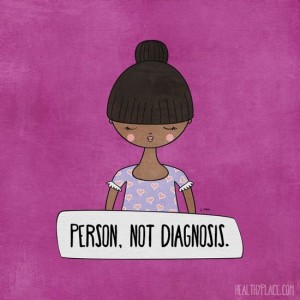TALKING ABOUT POWER with Penelope Fowler 2020socialjustice student award-winner 2015
March 11th, 2016 | Published in Guest posts, Power & Politics

Guest blogger, Penny Fowler, in conversation with Joan Beckwith
We met – to talk about power – on a beautiful summer afternoon when many others would have been enjoying a day at the beach. We did not previously know each other, but Penelope (Penny) Fowler is the 2015 winner of the 2020socialjustice student award.
The award is based on academic work in the third year of the combined degree in psychology and social work at RMIT University in Melbourne, and Penny won it for the overall excellence of four short essays on the following topics:
- Working with Aboriginal and Torres Strait Islander families
- Families in which a member has a diagnosis of mental illness
- Involving fathers in family work
- Negotiating a collaborative relationship in supervision
When I first read Penny’s essays, power relations stood out as a connecting theme, and I asked if we could have a conversation about this. Penny agreed, I put together some questions, and we spent several interesting hours talking about them.
Here are my nine questions (Joan Beckwith) and a summary of responses (Penny Fowler).
Working with Aboriginal and Torres Strait Islander families
JB: One of your essays was about working with a (hypothetical) Aboriginal family in relation to issues of child safety. How would you see yourself within this group in terms of power relations?
Penny Fowler: As a white female, I am part of a dominant group and that creates a power imbalance. I would work to deconstruct this by drawing on the family’s sources of power – as experts in their situation and knowledge of their own culture.
creates a power imbalance. I would work to deconstruct this by drawing on the family’s sources of power – as experts in their situation and knowledge of their own culture.
As a professional, I would also have role-power, which I can draw on to advocate for my clients’ needs and to assess them for community and state services.
Additionally, I would be required to report back to child protection services in relation to the children’s safety, and any action arising would draw on my power as an agent of the state.
This intersection of racial, professional, and state-derived power is complex, and I am aware of needing to be thoughtful about addressing it.
JB: What is your understanding of white privilege?
Penny Fowler: Those who resemble the dominant white group in society, which holds the bulk of institutional power, benefit from greater access to opportunities and resources. Whiteness is widely represented in positions of power, institutions, media, and culture. These representations, the experiences of white people (including family experiences) and white people’s ideas of success create the norms that become generalised across social groups.
JB: How would you prioritise the wellbeing of children while remaining aware of the historical context of oppression, dispossession, and racism affecting Aboriginal people?
Penny Fowler: I would need to make sure all members of the family, including the children, had their voices heard, and also open up conversation about my professional role and power.
including the children, had their voices heard, and also open up conversation about my professional role and power.
I would aim to build a collaborative relationship as co-learners and would, for example, draw on the family’s greater cultural knowledge to do that.
I would also expand understanding of problems beyond personal deficits to consider contributing factors and barriers in the social context and history of colonisation.
JB: How might your work with this Aboriginal family compare with your approach to a white family? Or, perhaps a family with two parents of the same sex?
Penny Fowler: All professional work requires thought about professional power. Additionally, working with diverse families raises issues of structural power. The examples here are about race and sexuality, but could also be about class, gender or disability.
I would need to locate families in their social context, and consider the barriers that arise for those who don’t fit the dominant group.
Working with families in which a member has a diagnosis of mental illness

JB: In relation to working with families in which a member has a diagnosis of mental illness, I would like to ask about the idea of mental illness per se. Have you, over the journey, had the opportunity to critique the medical model of mental illness?
Penny Fowler: The medical model can operate in oppressive ways for individuals as it focuses on personal deficits and does not acknowledge structures that exclude, oppress, or fail to protect from abuse. It doesn’t challenge the narratives and stereotypes that marginalise on the basis of race, gender, class or other dimensions of inequality.
Within the model, the effects of oppression, abuse and trauma are taken out of their social and historical context and treated as the problem. There is no attempt to recognise or change the aspects of the context that contribute to individual and group distress.
JB: Has your combined degree in psychology and social work provided spaces for considering the individual in social context?
Penny Fowler: This is an interesting question as these two knowledge areas, which you would assume would overlap and complement each other have been quite separate, and at times opposing, in my experience.
Many subjects in psychology so far (I still have two years to complete my combined degree) have focused on the neuropsychology and biology of the individual, applying a single standard of ‘normal’ without acknowledging broader influences on a person’s life.
One subject, social psychology, touched on the way society interacts and shapes behavior through its structures, influence and expected standards, and that was useful.
Studying social work has opened up questions about how structures  generate privilege and power for dominant groups and oppress others. Discussing key theories and engaging in self reflexivity have developed understanding of how these powers operate within our current social system.
generate privilege and power for dominant groups and oppress others. Discussing key theories and engaging in self reflexivity have developed understanding of how these powers operate within our current social system.
Getting these perspectives working together is an ongoing challenge.
JB: What are your thoughts about the interaction of the personal and the sociopolitical, and what influence would these have on your practice?
Penny Fowler: I think the personal and the sociopolitical interact on many levels and we need to consider them in relation to each other. I have thought about what this means for the sort of practice I would like to engage in.
If I did micro social work, at the level of working with individuals, the question would be whether such work can change oppressive structures.
This dilemma has led me to consider macro practice, which focuses on changing policy and broader structures to create better systems for marginalised and oppressed groups.
Whichever kind of work I do, I think macro-awareness needs to shape micro-practice (and vice versa).
Involving fathers in family work
JB: In relation to your essay on involving fathers in family work, there’s a trend (at least in some demographics) for fathers to be increasingly involved in day-to-day care of children. What sorts of power issues would you think about in working with families when the father is to be a participant?
 Penny Fowler: I think it’s crucial to meaningfully involve fathers in practice and to consider the power dynamics that may be at play when working with families and fathers.
Penny Fowler: I think it’s crucial to meaningfully involve fathers in practice and to consider the power dynamics that may be at play when working with families and fathers.
Firstly, I would need to consider how any particular father fits within the dominant male group in society. My work may then partly focus on creating space to hear the experience of the children and mother in order to shift the balance of power.
I would also need to consider the power of the mother in this situation. Historical dominant discourses have generally positioned the mother as central to child-rearing, and the father as relatively peripheral. A key role might be to deconstruct this discourse, recognise the father’s role, and create opportunities to hear his perspective.
Collaborative relationships in professional supervision
JB: Your essay about professional supervision notes the tension between a supervisor’s influence (as it derives from expertise) and a supervisor’s authority (as it derives from position in an organisational hierarchy):
What have you learned from your experience of supervision that might help you navigate the tension between support and monitoring dimensions of social work roles?
Penny Fowler: I’ve learnt there’s a delicate balance between care and control when working with people. You may assist and support your clients (in the care role), but can also grant or deny access to certain services and may additionally have responsibility to monitor behaviors that put clients or others at risk.
To fulfil both the care and monitoring roles, you could start by being honest and transparent and establishing mutual understanding with clients about your position. What you learn of others’ circumstances depends on rapport and trust and, in turn, the insights gained are important in guiding action.
The two functions of care and monitoring seem contradictory at one level and yet they are also interdependent and need to work together.
Joan Beckwith: I’ve enjoyed our conversation, Penny. All the very best for the future. I’m sure it’ll be impressive whatever you decide to do.
Penny Fowler: Thanks, Joan, for the opportunity to receive this award and for your thought-provoking questions. It’s been great to have a chat with you about these interesting topics.
 Penny is currently a student in the combined Social Work/Psychology degree at RMIT University in Melbourne. She has a key interest in working with youth and currently works as a residential mentor with Indigenous students. Penny looks forward to continuing to develop her knowledge of Indigenous affairs as she has a strong passion in the area and sees the need to change current systems that can be particularly oppressive.
Penny is currently a student in the combined Social Work/Psychology degree at RMIT University in Melbourne. She has a key interest in working with youth and currently works as a residential mentor with Indigenous students. Penny looks forward to continuing to develop her knowledge of Indigenous affairs as she has a strong passion in the area and sees the need to change current systems that can be particularly oppressive.
Scroll down to leave your comments and feedback
First-time comments have to be moderated, a process normally completed within 24 hours. Do check back. Comments are greatly valued, always read, and usually responded to. After your first comment, subsequent ones appear automatically.
Social justice is for everyone (previously 2020socialjustice) is also on Facebook (click here)
And Twitter (click here)




This was an insightful and educational read, Thank you Penny & Joan.
When dealing with the diagnosis of mental illness, what alternatives do you see to using the conventional medical model?
Big question, concisely stated, Afra. In my own work as a psychologist, the key models I have drawn on include trauma theory (Bessel van der Kolk and others who pay a lot of attention to personal history), narrative theory and therapy (with its focus on storying and re-storying people’s lives) and feminist theory (with its combined emphasis on addressing power relationships and the effects of sociopolitical context).
So, for example, in working with people seeking asylum in Australia, instead of thinking in terms of individual psychopathology, my framework would look to the toxic context that our policies have forced people to live within. I would still have to pay attention to individual psychic pain, but would conceptualise it as an understandable response to intolerable circumstances, and would (and do) also feel compelled to be active in challenging prevailing policies…Joan Beckwith.
Hi Afra, thank you for your comment and really interesting question! I think Joan explained some key alternative models to work with.
In my studies so far, I have touched on a few models of dealing with mental illness and the one that stuck with me is that of the social model. From my understanding, the social model aims to place individuals in their context and recognise how societal structures can create oppressive barriers to individuals and contribute to their distress. I think it is really important to consider all factors that impact a person with a mental illness, not just focusing on biological make up but also acknowledging cultural and societal influence.
Congratulations on the award Pen! Well done! I found the interview really interesting to read – it raises so many interesting questions on social structures and interactions – what is the path to empowerment and social justice for all? As a society, how do we create a balance and maintain it when our politicians by and large respond to the needs of minorities with tokenism and appeasement? Nevertheless, it is a reminder that it is so important never to lose sight of one’s goals.
I’ve been reminded by comments on my Facebook page recently, Patrizia, about the need for persistence in the face of seemingly intractable obstacles to social justice and the tokenism and appeasement you refer to. I also think it’s important not to compromise on ideals just because the gap between them and reality continues to gape and yawn. Having people close who are more or less coming from the same place is hugely important, and meeting people like Penny helps me maintain that sense of community of interest, as do my social justice sites (most of the time)…Joan Beckwith.
Hi Patrizia, thanks for reading and your comment! I think it can be hard to deliver a lot of these principles and practices I spoke about in our current societal structure. As you said, we can keep our goals in mind and hopefully move towards more socially just policies and structures.
That was really interesting guys! Particularly, acknowledging the complex nature of professional and state-derived power when dealing with individual familial cases. With institutions, often dominant power structures either limit or decrease the scope of help needed.
Has this been true of your experiences thus far?
Thank you for your comment and question Phoebe. I would be really interested to hear what your experience of dominant power structures within institutions has been.
Within many institutions I think there can be a strong hierarchical power structure and top-down systems at play. In my experience, this structure can often create a discrepancy between what services are being provided and what services are actually needed. I think this can be due to the people situated on top with the dominant power not being the person that interacts directly with service users and therefore being out-of-touch with their actual needs. I also think there are other factors which contribute to institutions not being able to meet demands, a key one being funding. In my experience though, I have seen how this kind of power structure inhibits the ability for growth and change as it does not allow for all voices to be heard, limiting feedback loops.
Thank you, I really enjoyed reading this!
To what extent do you think an individual’s personal history can affect their perspective of the power relations at play in some of the contexts you spoke about?
Thanks for your comment, Celest. It would be good to hear more about your thoughts on this.
Penny will probably respond separately, but I wanted to jump in and say that I think our personal history can provide concrete experience of power relations that can contribute to understanding the bigger picture. However, I also think that anybody can grasp the principles – if they choose to.
Our personal experiences can also leave a legacy that shapes the view of the bigger picture, so there’s a process of reflecting on personal experience in the light of general analysis and vice versa…Joan Beckwith.
Celest, thank you for your comment and interesting question.
I think an individual’s personal history of different positions of power can shape how they may understand and interpret power relations to operate. I also think personal reflection on these power positions can provide insight into understanding the personal power we hold in different contexts and how this may affect our interactions with others.
I think our personal experience can influence our understanding of power. However, similarly to Joan, I think anyone has the ability to understand the intricacies and concepts of power relations in different contexts, despite having personally experienced them or not.
It would be great to hear your thoughts too.